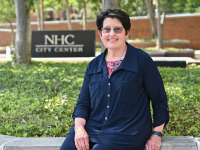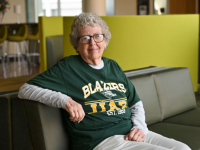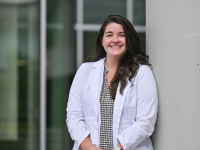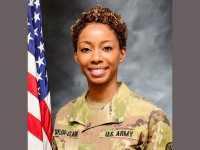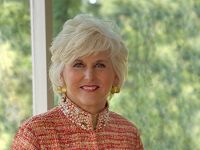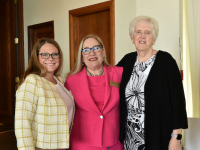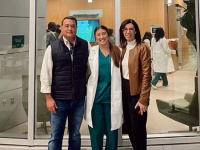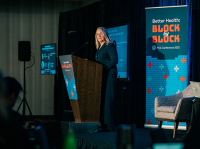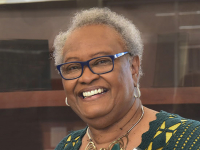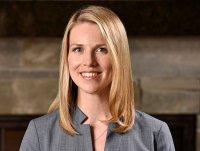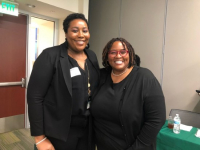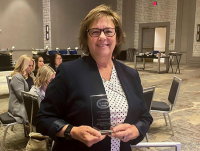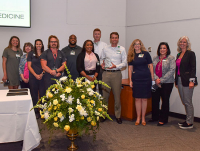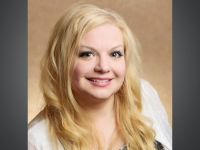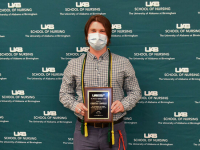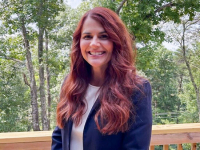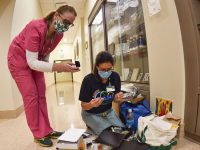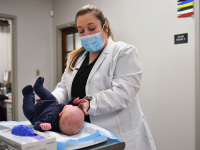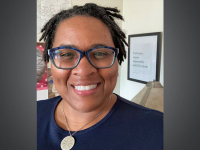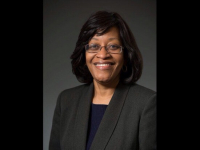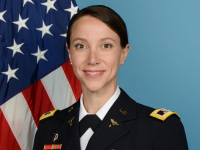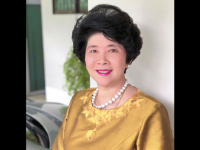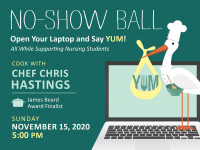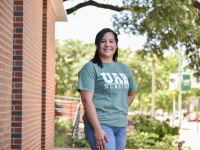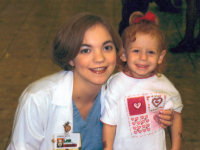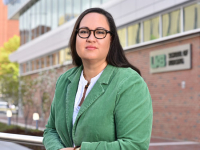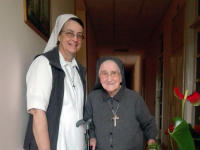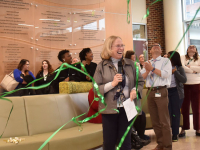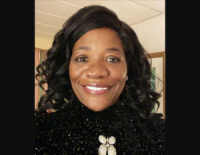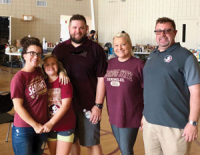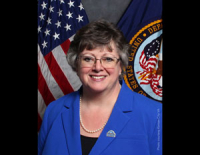
By Pareasa Rahimi
University of Alabama at Birmingham School of Nursing alumna and Clinical Assistant Professor Stephanie Reed, DNP (BSN 2008, MSN 2015, DNP 2022), is Chief Clinical Information Officer at Children’s of Alabama, serving as an intermediary figure among the professions that impact patient care.
“I am the middle ground between nurses taking care of patients and the IT professionals who are working on computers daily,” Reed said. “I can use my clinical expertise and IT knowledge to merge the gap between the two, and it’s helpful to both sides to have multiple perspectives at the table. At the end of the day, it’s about marrying the clinical workflow with health IT and identifying how health IT can complement or improve patient care.”
Reed launched her informatics career non-traditionally. After earning her Bachelor of Science in Nursing degree from the School, she worked at Children’s of Alabama as a bedside pediatric intensive care unit nurse. While in that role, she was asked to help with a short-term IT project as a nurse informatician, with a plan of returning to the bedside within a year. What turned out to be an ever-evolving project led to Reed discovering her passion for informatics. Since then, Reed’s career has progressed from nurse informaticist, to manager of nursing informatics, and most recently taking on the entirety of clinical informatics for the hospital. As Chief Clinical Information Officer, she oversees all facets of informatics, including nursing, lab, pharmacy and radiology, as well as clinical information technology. She also has since returned to the UAB School of Nursing to earn a Master of Science in Nursing degree with a specialty in Nursing Informatics and a Doctor of Nursing Practice degree.
“I didn’t even fully know what informatics was until a few years into the project, so once I recognized that, I wanted to formalize everything I was doing at Children’s of Alabama by going back for my MSN,” Reed said.
Reed said the Nursing Informatics specialty furthered her understanding of information technology, gave her leadership and project management experience, and provided the opportunity to be involved in frontier work, getting on the ground floor of new ideas and technologies within the field. Her mentorship with the late Dr. Marisa Wilson, Associate Professor and director of the Nursing Health Systems Leadership Pathway, was key to these experiences.
“Dr. Marisa Wilson was invaluable to my career,” Reed said. “She was a frontrunner in nursing informatics and an incredible mentor to me. I could not thank her enough for all that she did for me, both from an educational perspective and as a colleague.”
Reed was among one of the first cohorts of the School’s Nurse Executive Doctor of Nursing Practice Pathway. Her DNP project focused on implementing telehealth for pediatric patients in the midst of the COVID-19 pandemic. Outcomes included an increase in patient visits, a decrease in no-show rates and sustained patient satisfaction.
“Being able to grow in my career as a nurse informatician, formalize that with executive-level and leadership education and take a step back as a student to evaluate all the work we’ve been doing through a pandemic was so exciting to see,” Reed said.
Reed considers herself a lifelong learner and is passionate about identifying ways in which virtual care can complement nursing practice in the pediatric landscape. She currently is evaluating how virtual nursing could be used to complement nursing care at the bedside in pediatrics. She is an active member of the American Telemedicine Association, which allows her to network with colleagues who also are evaluating new nursing care models that include virtual nursing. She recently was asked to co-chair the ATA’s Pediatric Special Interest Group, where she will help facilitate the conversations about pediatric virtual care models.
“I have been able to be a part of the nursing informatics evolution and have seen firsthand how emerging technologies are improving care," Reed said. "The up-and-coming technology related to virtual nursing has the potential to decrease nursing burnout and expand the careers of nurses that are considering leaving the bedside early. Why lose the experience and mentorship of an experienced nurse if he or she can still practice to the top of their license virtually? These are very exciting times, and I am passionate about it. There is no telling what the future holds for where nursing and technology intersect.”

